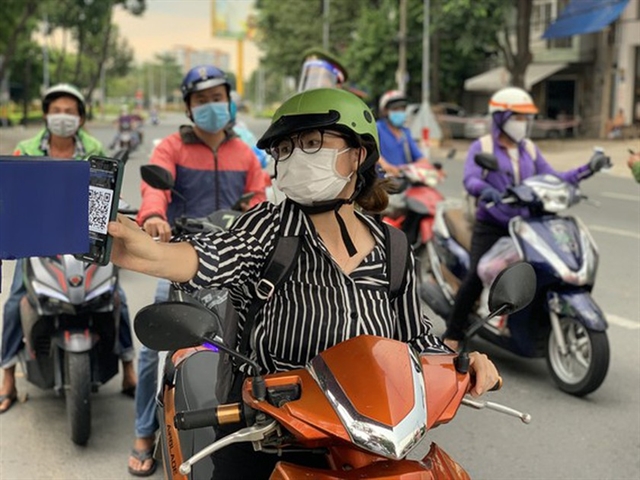 Society
Society


|
| HCM City has installed 100 QR-code scanning cameras at COVID-19 checkpoints to reduce the risk of COVID-19 transmission. — Photo: sggp.org.vn |
HCM CITY — The HCM City Department of Public Security has installed 100 QR-code scanning cameras at COVID-19 checkpoints to minimise the risk of disease transmission.
Residents who have made medical declarations will display their QR codes, which will be read by cameras at the checkpoints. The information will be transmitted to a computer network and checked by police officers.
Officers at checkpoints will be able to know whether residents are eligible for travel.
The cameras will make it easier to move through the checkpoints and reduce the risk of COVID-19 infections among forces working there, a department representative said.
Sr Lieutenant Colonel Lê Mạnh Hà of the department said the names of people with travel permits and those allowed to travel on the road without a permit were being added to the national population database.
To ensure the supply of food and goods, the People's Committee of HCM City has agreed to extend free COVID-19 testing for shippers until September 15.
The city Department of Industry and Trade said that shippers began transporting essential goods and food to all city districts on August 30. Previously, delivery services had been banned in about seven high-risk districts at the start of the strict social distancing period on August 23.
Although the number of active shippers is only 50 per cent of the registered number of about 10,000 shippers, the total number of completed orders has reached 1,066,871, an average of 152,410 orders daily.
Shippers in extremely high-risk (red zone) districts will undergo rapid antigen tests every day, while shippers in the remaining districts of the city will be tested twice a week. — VNS




